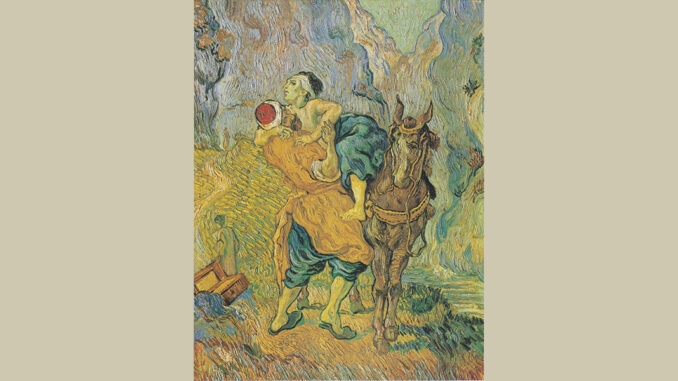
Kindness has been called the small coin of love. The word is generally used to designate the little deeds of thoughtfulness and gentleness which make no noise in the world — rather than the large heroic acts which all men note and applaud. One may live many years and never have the opportunity of doing any great thing — but one may always be kind, filling all one’s day with gentle attentions, helpful ministries, little services of interest and sympathy, and small courtesies. Wordsworth speaks of “That best portion of a godly man’s life — his little, nameless, unremembered acts of kindness and of love.”
Kindness is beautiful in its spirit and motive. It usually springs out of the heart spontaneously. The greater things men do are prepared for, planned for, and are done consciously, with intention and purpose. Kindness as a rule, is done unconsciously without preparation, without thought. This enhances its beauty.
There is no self-seeking in it, no thought of reward of any kind. It is done in simplicity, prompted by love, and is most pleasing to Christ.
The things we do consciously, with thought and intention, oft-times have much of self in them. The things we do without purpose or plan, are the truest indexes of the heart and mean most in God’s sight.
The world does not know how much it owes to the common kindnesses which so abound everywhere.
There had been a death in a happy home, and one evening, soon after the funeral, the family was talking with a friend who had dropped in, about the wonderful manifestation of human sympathy which their sorrow had called out. The father said he had never dreamed there was so much love in people’s hearts as had been shown to his family by friends and neighbors, even by mere acquaintances, that week. The kindness had come from all classes of people, from many from whom it was altogether unexpected, even from entire strangers. “It makes me ashamed of myself,” said the godly man, “that I have so undervalued the goodwill of those around me, and that I have failed myself so often in showing sympathy and kindness to neighbors and friends in their times of sorrow.”
No doubt it often takes trouble or sorrow to draw out the love there is in people. We all feel sympathetically even toward a stranger who is in grief or suffering. Death-crape on the door of a neighbor makes us walk by the house more quietly, more softly, as we think of those within sitting in their grief.
It may require sorrow or suffering to call out the kindly feeling — but the feeling is there all the time. No doubt there is cruelty in human hearts — but this is only the exception. The majority of people have hearts of kindness if only the right chord is struck.
The ministry of kindness is unceasing. It fills all the days and all the nights. In the true home, it begins in pleasant greetings with the first waking moments, and all day goes on in sweet courtesies, in thoughtful attentions, in patience, in quiet self-denials, in obligingness and helpfulness.
Some of us, if we were to try to sum up the total of our usefulness, would name a few great things we have done: a gift of money to some benevolent object, the starting of some good work which has grown into strength, the writing of a book which has done good to many lives, the winning of honor in some service to our community or to our country.
But in every worthy life, that which has left really the greatest measure of good, has been its ministry of kindness. No record of it has ever been kept. People have not talked about it. It never has been mentioned in the newspapers. We do not even remember it ourselves. But wherever we have gone, day after day, if we have simply been kind to everyone, we have left blessings in the world which in the aggregate mean far more than the few large things we set down as the measure of our usefulness among men.
Our Lord’s wonderful picture of the Judgment reveals another phase of the splendor of kindness. He tells us that the little things we do — feeding the hungry, giving drink to the thirsty, showing hospitality to the stranger, visiting the sick, and the other nameless ministries of love of which we take no account — if done in the right spirit, are accepted as though they had been actually done to Christ himself
The best thing we can do with our love, is not to watch for a chance to perform someone fine act that will shine before the world — but to fill all the days and hours with little kindnesses which will make countless hearts nobler, stronger and happier.
J.R. Miller (1840-1912) was a pastor and former editorial superintendent of the Presbyterian Board of Publication from 1880 to 1911. His works are now in the public domain.



